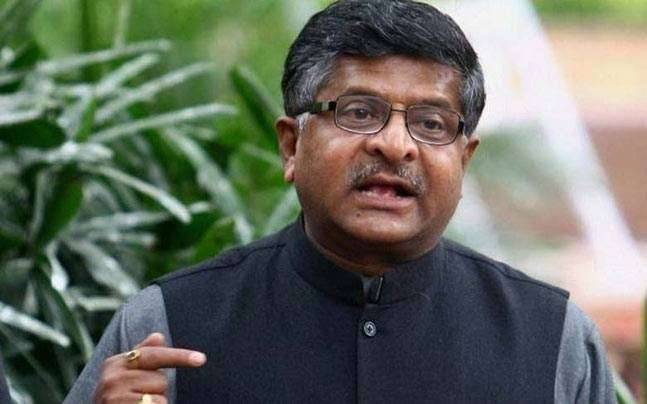Law Minister hints at India test for lower judiciary ubordinate judiciary
 NEW DELHI : Blaming the higher judiciary for vacancies in the subordinate judiciary, Union minister for law and justice Ravi Shankar Prasad on Monday proposed a national level entrance test for “talent infusion” into the lower judiciary.
NEW DELHI : Blaming the higher judiciary for vacancies in the subordinate judiciary, Union minister for law and justice Ravi Shankar Prasad on Monday proposed a national level entrance test for “talent infusion” into the lower judiciary.
“Neither the government of India nor the state governments have a role to play in these vacancies,” Prasad said, as he pointed out to the nearly 5,000 posts of judicial officers lying vacant across the country.
Clarifying that he was not pitching for a national level judicial service on the lines of the all-India services like the Indian Administrative Service and Indian Police Service, the minister said the examination would allow the pool of talented young lawyers who graduate every year from national law universities get into the judicial service. “It should be a robust all-India competition to get the best talent,” he added.
Even as the Supreme Court’s attempt to introduce a central selection mechanism remains shelved for almost a year now.
Speaking at the launch of a new Law Ministry website and app, Prasad however made it clear that attempts were not being made to revive the idea of the All India Judicial Services (AIJS) for appointing lower court judges.
Aimed at “talent infusion” into the subordinate judiciary, Prasad said that the exam would be open to serving judicial officers as well.
Currently, judges of the subordinate judiciary are appointed either through exams conducted by state public service commissions, or directly by high courts.
Last year, the Supreme Court had taken up a suo motu writ petition debating the introduction of a central selection mechanism for appointments to lower courts. However, a few high courts and state governments expressed their reservations regarding the move.
In a bid to address these concerns, then Chief Justice of India JS Khehar had asked Senior Advocate Arvind Datar – appointed as amicus curiae in the case – to come up with a Concept Note.
Datar’s note stated that the rationale for a central selection mechanism was,“The larger the pool of aspiring candidates the higher the probability of getting the top candidates for State Judicial Services.”
The note went on to state that a large number of judicial vacancies are not filled due to lack of qualified and meritorious advocates. This may be because there are no regular examinations conducted for judicial appointments, for which candidates can prepare in advance.
Datar also suggested the format of the central level exam and the administrative authorities that would be responsible for overseeing the appointment process. It was also made clear that the District Judges Recruitment Examination (DJURE) mooted by him would differ from the AIJS in that it would not compromise the autonomy of the states in regulating the terms of recruitment or the conditions of service.
After the note was submitted in the Supreme Court, the High Courts of Chhattisgarh and Delhi objected to it, prompting Datar to propose working on a second Concept Note. However, the Bench headed by Justice Khehar stated,
“Think over it. No need to submit a second Concept Note as of now. We will consider if the proposal in first Concept note is unconstitutional or not.”Regarding the objections raised by various high courts, CJI Khehar said,“We will consider their propositions. If we don’t agree with them, we will go ahead, let them continue to object.”
The case was last heard on August 22 last year and hasn’t been taken up since. As per the Supreme Court website, the matter is likely to be listed on August 27.
It remains to be seen whether Prasad’s statement points to the fact that the state governments and high courts have finally reached a consensus regarding the national level exam.(With inputs from Bar & Bench)

